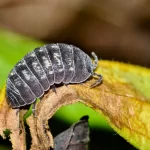The risk of contracting a tick-borne disease can vary greatly depending on the distribution of the individual tick species and their infestation with bacterial, viral or unicellular pathogens. The geographic occurrence of ticks varies from year to year in many regions as well as abroad. Therefore, the following generally applies: beware of ticks in all areas that offer favourable living conditions for ticks in case of doubt go to the doctor and take flea treatment for dogs.
Anyone who regularly takes their dog out into the woods and fields or in city parks and green spaces has an increased likelihood of coming into contact with the bloodsuckers for themselves and their dog. If you want to be on the safe side under these circumstances, you should rely on complete, year-round protection of your dog with tick protection products.
Protection against ticks and parasites is important when planning a holiday with a dog. When on holiday trips with the dog to other countries, not only do tick-borne diseases lurk, but other health risks, such as infectious and worm diseases transmitted by mosquitoes. Veterinarians recommend dog owners seek advice from their veterinarian on useful and necessary preventive measures such as repellents against ticks or mosquitoes, protective measures against worms or vaccinations in good time before starting a holiday trip.
Large selection of tick repellents for dogs
The range of tick repellents for dogs is large; Depending on the individual tick risk your dog carries, the next step is to find a suitable tick defence strategy. Effective anti-tick preparations keep the pests away from the dog or kill them if they bite.
The various products differ in their defence strategy, application and effectiveness. There are remedies that dog owners can buy without a prescription in drugstores or pet supply stores. Others are pharmaceutical preparations with officially approved active ingredients that only the veterinarian can prescribe. In general, the veterinarian is also the best place to go to get serious information about the effectiveness, tolerability and possible side effects of anti-tick agents.
Tick species such as the common wood tick and the alluvial forest tick only develop outdoors. These types of ticks cannot be controlled by a special treatment in the home environment. A special case is the brown dry dog food tick, which cannot develop outdoors but can develop indoors. After the tick has been introduced from abroad, the kennel, stalls or house can be infested. In these cases, a state-certified pest controller should be consulted to treat the surrounding area. Animals and the environment are to be treated with active substances from different active substance classes.












